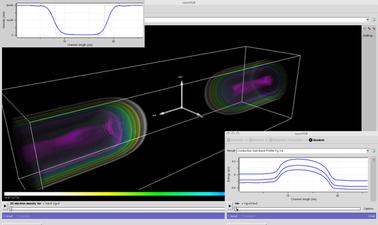Gerhard Klimeck
Gerhard Klimeck is the Reilly Director of the Center for Predictive Materials and Devices (c-PRIMED) and the Network for Computational Nanotechnology (NCN) and a Professor of Electrical and Computer Engineering at Purdue University. He helped to create nanoHUB.org which now serves over 1.8 million users globally. Previously he worked with Texas Instruments and NASA/JPL/Caltech. He published over 525 printed scientific articles that resulted in an h-index of 67 in Google Scholar. He is a fellow of the Institute of Physics (IOP), a fellow of the American Physical Society (APS), and a Fellow of IEEE.
Prof. Klimeck’s research interest is the modeling of nanoelectronic devices, bridging the gap between material science and device engineering, and impact studies through science gateways. He drives the development of the Nanoelectronic Modeling Tool NEMO5. NEMO, the nanoelectronic modeling software built in his research group established the state-of-the-art in atomistic quantum transport modeling. NEMO and its descendants are now being used at major semiconductor companies for advanced transistor designs and commercialized.
Dr. Klimeck was the Technical Group Supervisor of the High Performance Computing Group and a Principal Scientist at the NASA Jet Propulsion Laboratory, California Institute of Technology. Previously he was a member of technical staff at the Central Research Lab of Texas Instruments where he served as manager and principal architect of the Nanoelectronic Modeling (NEMO 1-D) program. At JPL and Purdue Gerhard developed the Nanoelectronic Modeling tool (NEMO 3-D ) for multimillion atom simulations. Dr. Klimeck received his PH.D. in 1994 on Quantum Transport from Purdue Univeristyand his German electrical engineering degree in experimental studies of laser noise propagation in 1990 from Ruhr-University Bochum.

